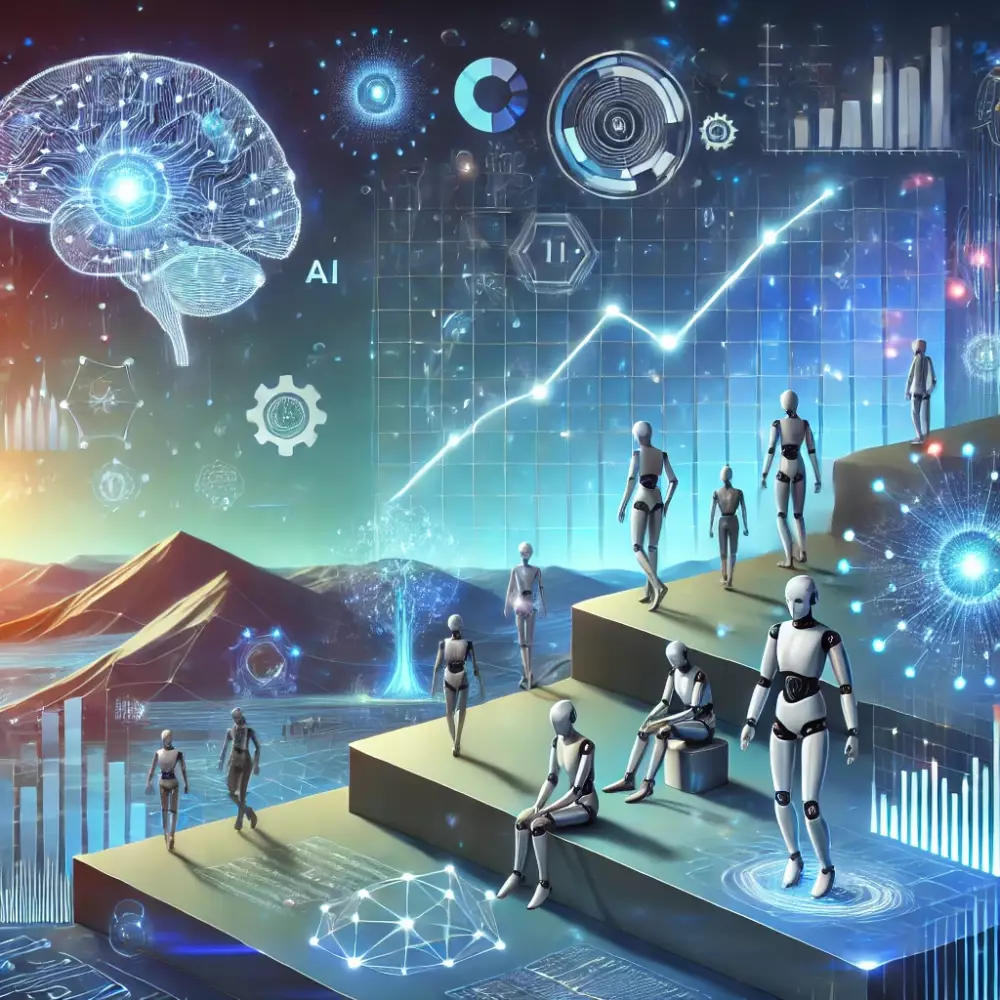
Generative AI: Slowing Progress or Strategic Pivot? 🌐
This article was collaboratively crafted by humans and AI, blending insights and precision to create a piece for your benefit. Enjoy!
In the past two years, generative artificial intelligence (AI) has seen rapid advancements, with groundbreaking developments emerging at an unprecedented pace. However, recent trends indicate that the momentum might be slowing, raising questions within Silicon Valley about the sustainability of such progress.
🚦 Signs of a Plateau
One notable sign of deceleration is the diminishing leap in quality between successive models from leading AI players. Reports from The Information reveal that OpenAI is grappling with a smaller-than-expected improvement for its upcoming model, GPT-5. Similarly, Anthropic has postponed the release of its flagship model, Opus, removing earlier references to it from its website. Even Google, a tech giant synonymous with innovation, has faced challenges. Bloomberg highlights that an internal iteration of Gemini has not met the company’s expectations. 🤔
“ChatGPT debuted at the end of 2022. Now, nearly two years later, we’re witnessing a plateau,” remarked Dan Niles, founder of Niles Investment Management. “Initially, there was a remarkable surge in what these models could achieve. However, with most of them trained extensively, performance gains are now leveling off.” 📊
🧮 The Scaling Laws Dilemma
If these trends signify a plateau, they could undermine Silicon Valley’s long-held faith in scaling laws—the belief that increasing computational power 🖥️ and data guarantees continuous improvement in AI models. Recent developments suggest this principle may be more theoretical than absolute. 🤷♂️
One critical issue is the "data wall," as AI firms exhaust high-quality data for training. Many companies have turned to synthetic data—data generated by AI itself—as a workaround. However, this solution has its drawbacks. ⚠️
“AI is an industry where it’s garbage in, garbage out,” cautioned Scale AI founder Alexandr Wang. “If you feed these models AI-generated nonsense, they’ll produce more nonsense.” 🗑️➡️🗑️
🏗️ Industry Leaders Weigh In
Despite these challenges, not everyone agrees that generative AI’s progress is slowing. Nvidia CEO Jensen Huang remains optimistic, emphasizing that “Foundation model pre-training scaling is intact and continues.” He acknowledged that scaling laws are empirical, not physical, but insisted that evidence supports ongoing improvements. 🔗📈
Echoing this sentiment, OpenAI CEO Sam Altman posted a succinct rebuttal on X (formerly Twitter): “There is no wall.” Google, too, defended its efforts, highlighting meaningful performance gains in areas like reasoning 🧠 and coding 💻 for its Gemini project. 🌟
📱 Shifting Focus to Applications
If foundational AI development is reaching its limits, the next phase may center on practical use cases—creating consumer applications built on existing models rather than waiting for further breakthroughs. AI agents, for instance, are seen as transformative. 🤖✨
“We’re heading toward a world with hundreds of millions, even billions, of AI agents,” predicted Meta CEO Mark Zuckerberg during a recent podcast. “Eventually, there may be more AI agents than people.” 🌍🤯
🔮 Looking Ahead
Whether the perceived slowdown in AI advancements is a temporary lull or an indicator of longer-term challenges, the industry is adapting. As researchers push the boundaries of existing technologies, companies are turning their focus to innovative applications, ensuring AI remains at the forefront of technological evolution. 🚀🎯
Written by Dev Anand from Funnel Fix It Team
